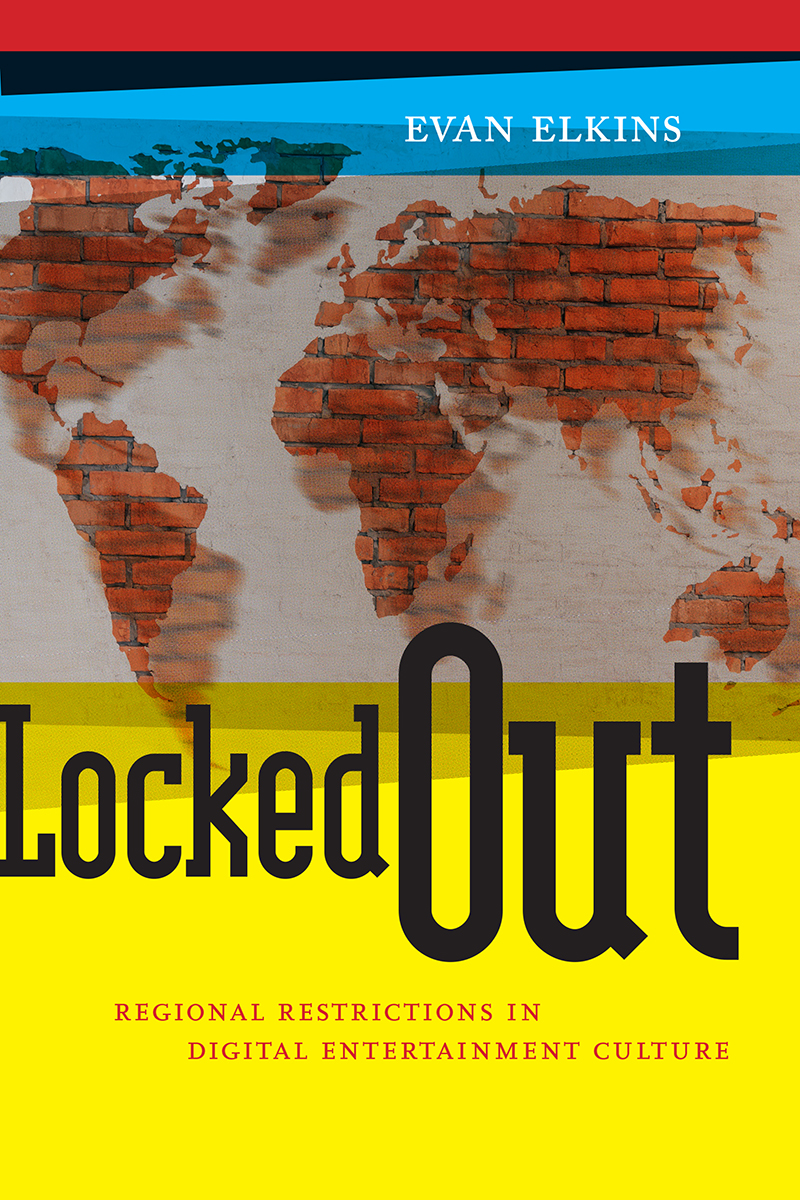
Locked Out
Critical Cultural Communication
General Editors: Jonathan Gray, Aswin Punathambekar, Adrienne Shaw
Founding Editors: Sarah Banet-Weiser and Kent A. Ono
Dangerous Curves: Latina Bodies in the Media
Isabel Molina-Guzmn
The Net Effect: Romanticism, Capitalism, and the Internet
Thomas Streeter
Our Biometric Future: Facial Recognition Technology and the Culture of Surveillance
Kelly A. Gates
Critical Rhetorics of Race
Edited by Michael G. Lacy and Kent A. Ono
Circuits of Visibility: Gender and Transnational Media Cultures
Edited by Radha S. Hegde
Commodity Activism: Cultural Resistance in Neoliberal Times
Edited by Roopali Mukherjee and Sarah Banet-Weiser
Arabs and Muslims in the Media: Race and Representation after 9/11
Evelyn Alsultany
Visualizing Atrocity: Arendt, Evil, and the Optics of Thoughtlessness
Valerie Hartouni
The Makeover: Reality Television and Reflexive Audiences
Katherine Sender
Authentic: The Politics of Ambivalence in a Brand Culture
Sarah Banet-Weiser
Technomobility in China: Young Migrant Women and Mobile Phones
Cara Wallis
Love and Money: Queers, Class, and Cultural Production
Lisa Henderson
Cached: Decoding the Internet in Global Popular Culture
Stephanie Ricker Schulte
Black Television Travels: African American Media around the Globe
Timothy Havens
Citizenship Excess: Latino/as, Media, and the Nation
Hector Amaya
Feeling Mediated: A History of Media Technology and Emotion in America
Brenton J. Malin
The Post-Racial Mystique: Media and Race in the Twenty-First Century
Catherine R. Squires
Making Media Work: Cultures of Management in the Entertainment Industries
Edited by Derek Johnson, Derek Kompare, and Avi Santo
Sounds of Belonging: U.S. Spanish-language Radio and Public Advocacy
Dolores Ins Casillas
Orienting Hollywood: A Century of Film Culture between Los Angeles and Bombay
Nitin Govil
Asian American Media Activism: Fighting for Cultural Citizenship
Lori Kido Lopez
Struggling for Ordinary: Media and Transgender Belonging in Everyday Life
Andre Cavalcante
Wife, Inc.: The Business of Marriage in the Twenty-First Century
Suzanne Leonard
Homegrown: Identity and Difference in the American War on Terror
Piotr Szpunar
Dot-Com Design: The Rise of a Useable, Social, Commercial Web
Megan Sapnar Ankerson
Postracial Resistance: Black Women, Media, and the Uses of Strategic Ambiguity
Ralina L. Joseph
Netflix Nations: The Geography of Digital Distribution
Ramon Lobato
The Identity Trade: Selling Privacy and Reputation Online
Nora A. Draper
Media & Celebrity: An Introduction to Fame
Susan J. Douglas and Andrea McDonnell
Fake Geek Girls: Fandom, Gender, and the Convergence Culture Industry
Suzanne Scott
Locked Out: Regional Restrictions in Digital Entertainment Culture
Evan Elkins
Locked Out
Regional Restrictions in Digital Entertainment Culture
Evan Elkins

New York University Press
New York
NEW YORK UNIVERSITY PRESS
New York
www.nyupress.org
2019 by New York University
All rights reserved
References to Internet websites (URLs) were accurate at the time of writing. Neither the author nor New York University Press is responsible for URLs that may have expired or changed since the manuscript was prepared.
Library of Congress Cataloging-in-Publication Data
Names: Elkins, Evan, author.
Title: Locked out : regional restrictions in digital entertainment culture / Evan Elkins.
Description: New York : New York University Press, [2019] | Series: Critical cultural communication | Includes bibliographical references and index.
Identifiers: LCCN 2018044166| ISBN 9781479830572 (cl : alk. paper) | ISBN 9781479873876 (pb : alk. paper)
Subjects: LCSH : Multimedia systems | Interactive multimedia. | Digital media. | Entertainment computing. | Trade regulation.
Classification: LCC QA76.575 .E534 2019 | DDC 006.7dc23
LC record available at https://lccn.loc.gov/2018044166
New York University Press books are printed on acid-free paper, and their binding materials are chosen for strength and durability. We strive to use environmentally responsible suppliers and materials to the greatest extent possible in publishing our books.
Manufactured in the United States of America
10 9 8 7 6 5 4 3 2 1
Also available as an ebook
For my parents
Contents
Regional Lockout as Technology, Distribution, and Culture
Imagine this happening to you when shopping. So reads the opening title of a hidden-camera video produced by the European Consumer Organization (BEUC) and set in an English bakery. As unsuspecting customers enter the establishment and place their orders, the cashier asks to see identification. The confused patrons hand over ID cards and passports to the cashier, who tells one woman that pain aux raisins and bread are unavailable to German and Bulgarian customers and charges Belgian and French customers different prices for the same product. He explains, Weve been doing this for a while. Its an industry standard practice. Titles onscreen ask, You wouldnt accept this in the physical world, so why should you accept it when shopping or watching content online? Then we see a hashtag: #endgeoblocking.
A second video, released by the European Commission, begins with narration by Commission president Jean-Claude Juncker, who laments digital fragmentation in the continent: You can drive from Tallinn to Turin without once showing your passport, but you cant stream your favorite TV shows from home once you get there. During this, we see other members of the Commission experience the frustrations of a regionally restricted internet. Commission vice president Andrus Ansip tries to watch a Dutch documentary on YouTube, but he encounters the platforms This video is not available in your country screen. Another commissioner attempts to buy a book online (Investment for Dummies) and looks comically aghast when he realizes that the shipping charges will nearly double the total purchase price. Acting ability of the Commission members notwithstanding, the video puts forward a rather convincing representation of the hassles that come with a geographically segmented digital landscape. In response, Juncker says in the video that Europe should represent a digital single market rather than a series of fragmented spaces.
This choice of words is not an accident. Both videos were created and distributed online to promote a European Commission initiative called the Digital Single Market (DSM). Introduced in 2015 with the goal of knocking down digital trade borders among EU countries, the DSM in part proposed an EU-wide ban against the topic of this book: regional lockout. Regional lockout refers to technological mechanisms in digital media hardware and software that control entertainment medias geographic distribution: region codes in DVDs and video game consoles and geoblocking in on-demand services, for instance. Regional lockout functions through a logic of prohibition, blocking people in certain regions from accessing media platforms as a way of ensuring that digital distribution remains consistent with region-based licensing agreements and release schedules. As media consumers, we encounter it whenever we see that familiar This content is not available in your country message. With the DSM in place, no longer would a streaming video platform remain available only to certain European viewers.
Next page




